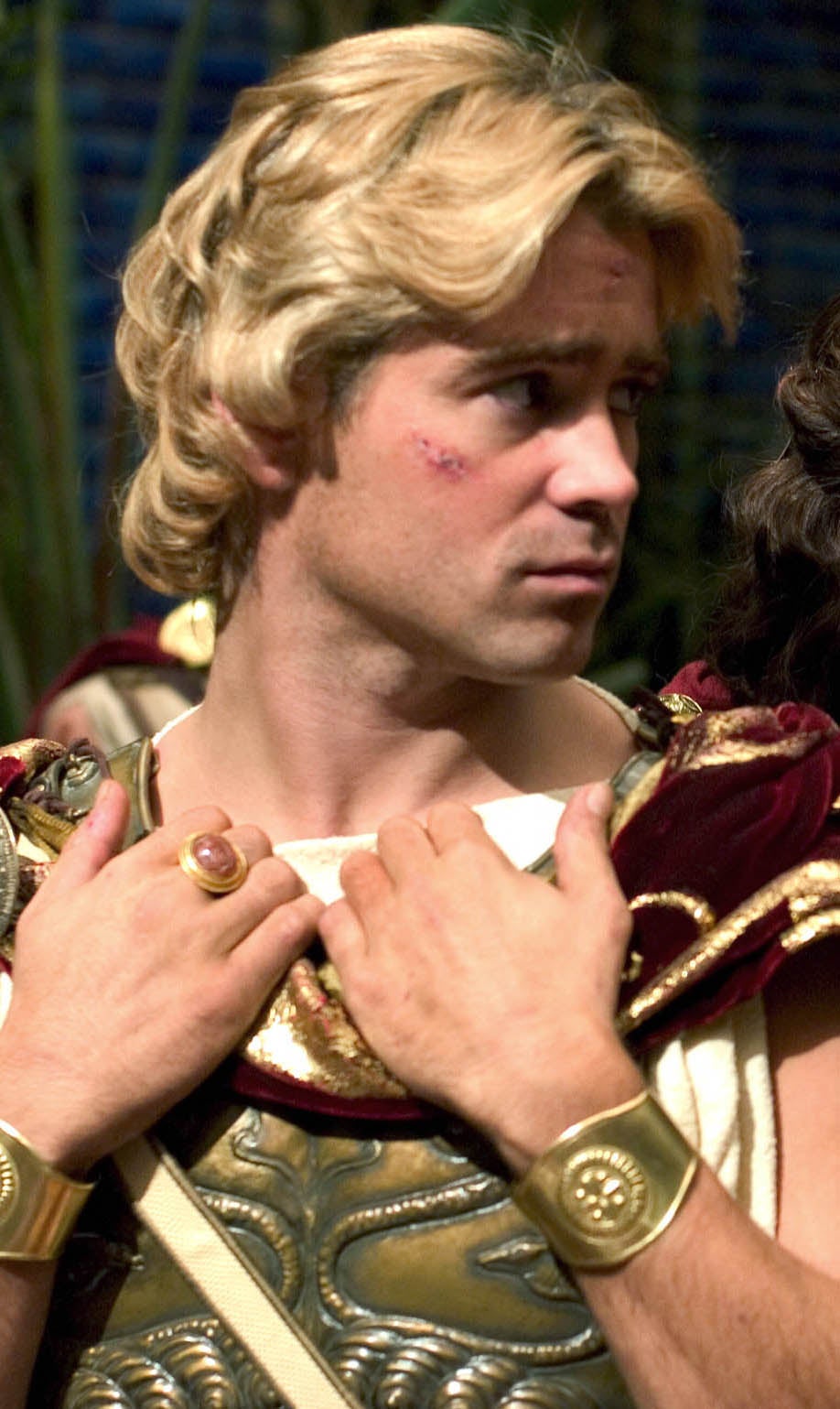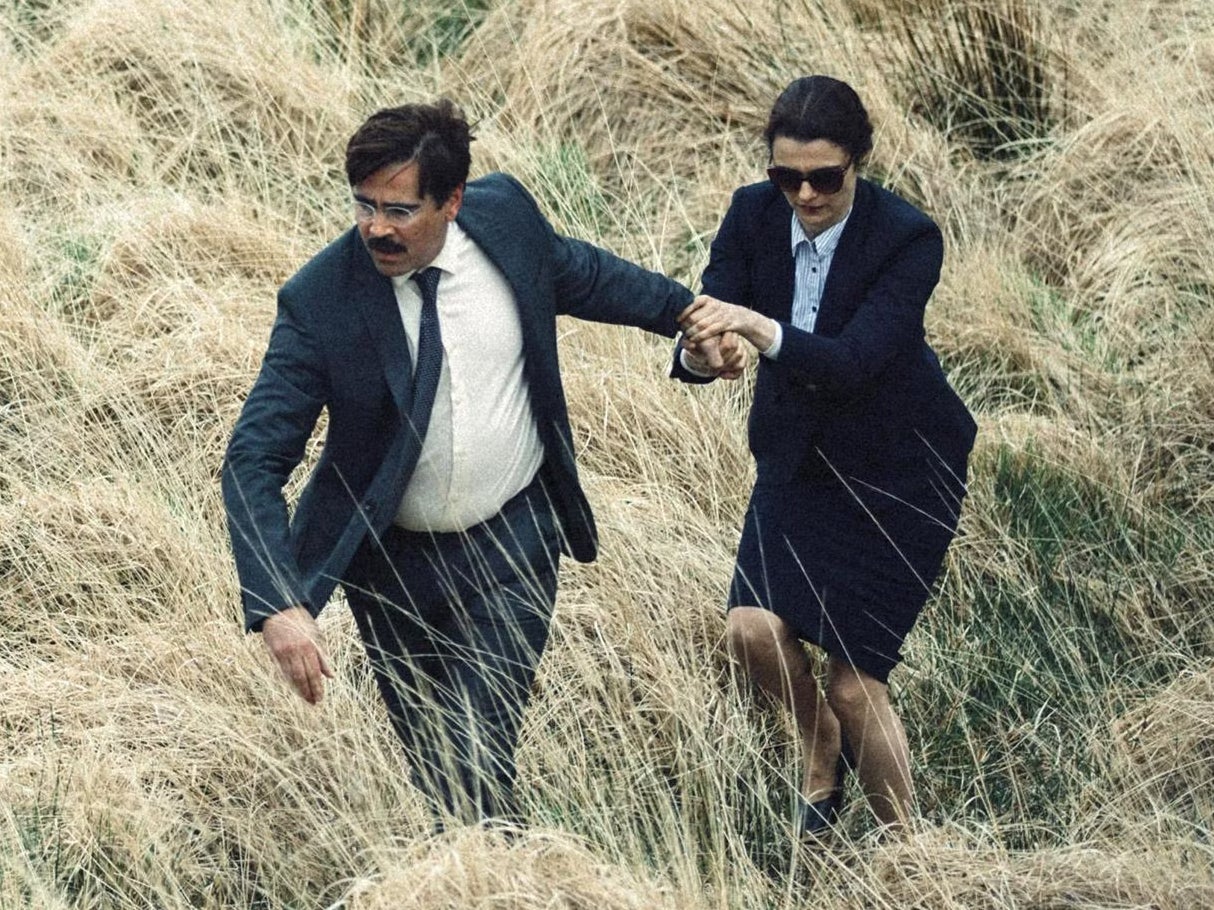The Banshees of Inisherin proves Colin Farrell’s run of flops was the best thing to ever happen to him
The ‘In Bruges’ star looked set to become the next Tom Cruise, but a far more interesting career ended up occurring. As the Irish actor hoovers up awards – and a probable Oscar – for ‘The Banshees of Inisherin’ Geoffrey Macnab salutes a remarkable career evolution

Mention Colin Farrell 20 years ago and a few things would probably come to mind. Drugs. Booze. Sex tapes. Farrell was one of Hollywood’s bad boys, an Irish actor who always seemed to be getting in trouble with the press and whose early promise seemed to stall amid a run of dud movies. How that has all changed...
Last week, Farrell picked up his second Best Actor Golden Globe for his outstanding performance as Padraic, the dim-witted farmer left devastated when his neighbour and best friend (Brendan Gleeson) turns on him in Martin McDonagh’s tragicomedy, The Banshees of Inisherin. Farrell brings pathos, fatalism and humour to the role. His Padraic is a gentle soul, bewildered by his friend’s hostility and upset that he now has no one to sup a pint with of an evening.
Farrell is being strongly tipped for an Oscar, too. Almost all reviews have mentioned his charm in Banshees, that little-boy-lost quality which makes you root for him. His work points to something wider about Farrell’s career as well: this one-time braggart and sex symbol has successfully reinvented himself as a character actor.
Take a look at Farrell’s versatility. It was instructive last year to see him as the obese, scarred, thoroughly grotesque and hideously ugly Oswald Cobblepot, aka Penguin, the owner of Gotham City’s sleaziest, noisiest, trashiest nightclub in Matt Reeves’ superhero film, The Batman. Compare Oswald to Farrell’s blond, brawly and bisexual warrior king in Oliver Stone’s swords-and-sandals epic, Alexander (2004) and you’d swear that they were played by completely different men.
Farrell’s reputation has evolved so much that today he’s not regarded as perfect casting to play Batman’s handsome millionaire alter ego Bruce Wayne, but his most misshapen adversary. Farrell is excellent in that film. Leering and sinister, he exudes false bonhomie. In a three hour movie very much shorn of humour, he provides some of its few laughs. Once or twice, he looks so sorry for himself that he elicits the audience’s pity. At the same time, he brings a sense of physical menace to the role that you don’t find in other screen Penguins, for example when Danny DeVito played the role in Tim Burton’s Batman Returns in 1992.
In an interview to promote The Batman last year, Farrell suggested that Reeves based the character of Oz/The Penguin on John Cazale’s Fredo Corleone in The Godfather. Like Fredo, the Corleone brother who is continually sidelined and overlooked, Oz in The Batman has (in Farrell’s words) “a certain amount of brokenness”. He is a vulnerable, self-pitying figure, always determined to prove himself – and to parry the sneers in the process.
There was a time long before his Penguin days when Farrell was the butt of the joke. His role in Stone’s Alexander was one of the main causes of the ridicule. Critics mocked his Irish accent, his golden hair (“an epically bad dye job” according to The New York Times) and even his knees. He was called “dull,” “fatally miscast,” “too small and ordinary”.
The actor had very mixed feelings about the role. He once described making Alexander in Morocco and North Africa as one of the “highlights” of his career – how it turned out he dubbed one of the “lowlights”. Before the film’s release, the Irish actor had been one of the fastest rising stars in Hollywood. He’d been in Spielberg movies (Minority Report), co-starred with Al Pacino (in The Recruit) and earned plaudits for his performances in Tigerland (2000) and Phone Booth (2002), both directed by the late Joel Schumacher.
Oliver Stone felt guilty about the effect Alexander had on Farrell. “I feel hurt for Colin,” the director told me when the film was re-released in a new cut on DVD. “I thought he was unfairly savaged and I tried to protect him. I loved what he did and I think he had the panache and glory. He had that sense of Irish outsiderness and brawniness that the Macedonians did bring to the Greek Empire. I think Colin took a beating and I think it hurt him.”

Watch Apple TV+ free for 7 day
New subscribers only. £9.99/mo. after free trial. Plan auto-renews until cancelled.
ADVERTISEMENT. If you sign up to this service we will earn commission. This revenue helps to fund journalism across The Independent.

Watch Apple TV+ free for 7 day
New subscribers only. £9.99/mo. after free trial. Plan auto-renews until cancelled.
ADVERTISEMENT. If you sign up to this service we will earn commission. This revenue helps to fund journalism across The Independent.
After Stone’s sword and sandal epic, Farrell was considered damaged goods. Any chance he once had of turning into a major star on a similar level to, say, Tom Cruise or Brad Pitt, seemed to vanish. He was frequently in the gossip columns for his drinking and sexual escapades, and seemed like a perfect example of an actor whose fast growing celebrity had suddenly turned toxic.
Farrell, though, was already reinventing himself. His choices in roles had always been bold. His instinct has been to follow the most adventurous writers and directors, regardless of the scale of the film or the amount of money he was likely to make for appearing in it. He’s done his share of action movies and blockbusters but has also continually worked with auteur-directors on their most personal and idiosyncratic projects. His list of collaborators are enviable: Terrence Malick (The New World), Neil Jordan (Ondine), Robert Towne (Ask the Dust), Terry Gilliam (The Imaginarium of Dr Parnassus), Liv Ullmann (Miss Julie), Yorgos Lanthimos (The Lobster, The Killing of a Sacred Deer), Sofia Coppola (The Beguiled), Steve McQueen (Widows) and Tim Burton (Dumbo).

One of the pivotal films in Farrell’s re-emergence was Martin McDonagh’s In Bruges (2008). It’s a darkly funny, highly original gangster yarn which unfolds in the most unlikely setting imaginable: a sleepy Belgian town, which plays host to Farrell’s assassin Ray after he’s sent there to “await instructions” after a job. As in so many of the actor’s best performances, he combines charm, menace and plenty of blarney. He also has a gift for understatement. “I didn’t even know where Bruges f***ing was,” Ray says in the voice-over that opens the movie, before he falls silent for several moments. “It’s in Belgium,” he adds nonchalantly.
Farrell was cast opposite Brendan Gleeson, one of Irish cinema’s most formidable character actors, and yet easily held his own. The two men are like a comedy double act. Gleeson’s character Ken relishes being in a fine old medieval city like Bruges and “quietly” seeing the sights. Farrell’s character behaves as if it’s the last place on earth he wanted to end up. His main interests are drinking and sex. His business is murder. “So what do you do, Raymond?” Clémence Poésy’s Chloe asks when they go on a date together. “I shoot people for money,” he replies without batting an eyelid, as if it’s the most natural answer in the world. Farrell’s Ray can be intimidating in his own Roy Keane-like way. He is a psychopath but a very likeable one. He can kill priests and children and still retain an audience’s sympathy.
Having so often tackled alpha male types, Farrell clearly relishes portraying very different types of men, notably in his strange and surrealistic films with the visionary Greek director, Yorgos Lanthimos. “Yorgos is really interested in thinking of actors in unexpected parts,” recalls Lanthimos’ producing partner Ed Guiney. “It was very much his idea to approach Colin for The Lobster.” He and Lanthimos ended up being deeply impressed by the actor. “The thing that is really distinguishing about Colin is his intelligence. He’s an incredibly bright man, very thoughtful, and an extremely low-key person, which sometimes belies the reputation he had as a younger man. There is also something about how Colin responds to Yorgos’ and [screenwriter] Efthymis Filippou’s dialogue. He’s able to work with it in an interesting way. It’s really idiosyncratic what they do. They write in Greek and then it gets translated into English… it’s quite theatrical and stylish and Colin can live in that world quite beautifully.”
In The Killing of a Sacred Deer, Farrell is cast as a quietly spoken middle-class surgeon whose world comes tumbling down around him. In The Lobster, he plays David, a plump, repressed, socially awkward figure who has come to a remote hotel in the hope of finding a mate. If he fails to do so within the required time, he will turn into an animal. He at least gets to choose which one. (His preference is for a lobster, because it lives for such a long time.)
“It’s the most boring performance that will ever be put on film, ever,” was how Farrell summed up his work in it to The New York Times. Boring, though, was just what his role required. It may have been the least animated he’d ever been on screen, but he was still nominated for awards.

In his mid-forties, Farrell has completed his metamorphosis. The one-time aspiring A-lister with the looks that almost won him a place in Boyzone has turned into a fully fledged character actor. He now works as frequently in independent films as in studio movies. Having played the Penguin in The Batman, the actor is set to reprise the role both in sequels and in his own spin-off TV series.
Traces of the old roisterer remain. Commentators couldn’t help but notice the way he charmingly showered Blonde star Ana de Armas with praise before his Globes acceptance speech, telling her she was “extraordinary” as Marilyn Monroe. He also showed his gallant side, escorting The White Lotus star Jennifer Coolidge to the stage when she went up to receive her Best Supporting Actress award.
“I love you for your brilliance on screen and your kindness off screen,” Banshees director McDonagh told Farrell when he picked one of his own awards that same night. Kindness wasn’t a trait anyone associated with Farrell in his hellraising days. There’s an obvious irony in the course his career has taken. In reinventing himself as a character actor and taking ever more offbeat roles, he has ended up an even bigger star than when he started.
‘The Banshees of Inisherin’ is streaming on Disney+ now
Join our commenting forum
Join thought-provoking conversations, follow other Independent readers and see their replies
Comments


Bookmark popover
Removed from bookmarks